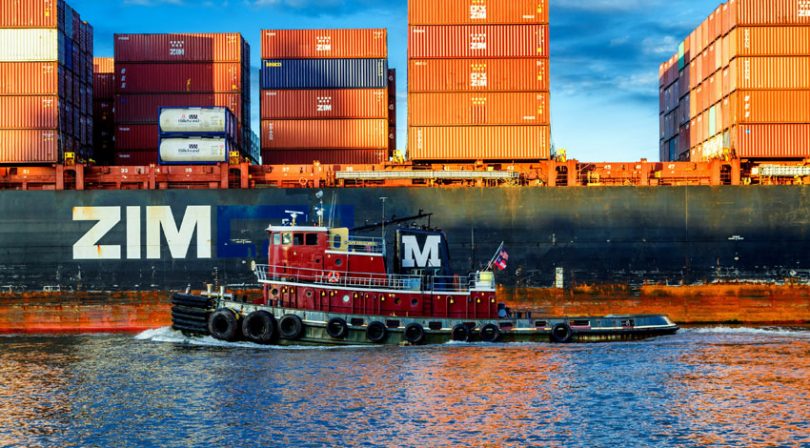Last week Canadian customs broker Livingston International announced that it has joined the IBM / Maersk TradeLens blockchain network. It’s also participating in a pilot with the Canada Border Services Agency (CBSA).
TradeLens is the container-centric digital shipping solution that aims to make global trade more efficient by reducing errors and cutting out wasted time. Livingston employs 3,200 staff at 100 ports around the world and is also involved in freight forwarding.
The blockchain network already has a Canadian contingent, and Halifax Port Authority CEO Karen Oldfield spoke at the IBM Think event in February. She stated that 20% of the cost of moving a container is administration. Oldfield also told a vivid story about the level of inefficiencies involved merely at the point of docking. [Video: Oldfield starts just after 17 minutes.]
“A vessel comes alongside. A ladder or gangway is dropped. A person comes over the side, they go down the gangway. They have a piece of paper in their hand. They walk out to the main gate. They take a taxi to Canada Border Services. They produce the piece of paper. They get a stamp. Back in the cab. Back to the terminal. Back up the ladder. Back to the vessel. Put the piece of paper in a big thick binder of other like papers.”
“And all of that has to happen before the containers can start to move through the port. TradeLens changes all of that. No ladders. No taxi. No stamps. No paper.”
The customs pilot
Back to Livingston, it aims to automate customs brokerage. And with the CBSA pilot, its role is to enter and access data about shipments and “streamline internal procedures without compromising accuracy or security.” The CBSA’s goal is to see what part TradeLens might potentially play in its business processes. Oldfield’s anecdote provides a good example.
The pilot will need to prove that it can optimize the speed and quality of data plus provide greater transparency.
“Livingston’s participation in this initiative allows us to analyze the impact of blockchain on the logistics process by bringing in the role of customs administration, which involves the submission, examination and storage of reams of data on a daily basis,” said Peter Patterson, IBM Canada – Blockchain Leader.
Last October the CBSA participated in a TradeLens pilot at the Port of Montreal.
Competition
Shipping and logistics is a notoriously competitive sector. TradeLens goes out of its way to emphasize that, despite Maersk’s involvement, it’s a “neutral industry platform”. Plus its website previously highlighted that Maersk’s involvement with TradeLens lives in a separate subsidiary. “Maersk business units including Maersk Line, Hamburg-Sud, APMT, and Damco participate on the same terms as other participants with no special treatment or access to competitor data,” said the website.
While the BiTA standards body for the transport and logistics sector aims to pull disparate parties together, there’s still significant competition. Not least from the Global Shipping Business Network (GSBN), an initiative with similar aims to TradeLens. The technology provider is CargoSmart, and its members include five of the top ten shipping companies CMA CGM, COSCO SHIPPING Lines, Evergreen Marine, OOCL and Yang Ming as well as several major ports.
Additionally, the world’s biggest freight forwarder, Kuehne + Nagel is working on a blockchain shipping project with Accenture.







